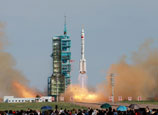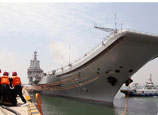
Carsten Boyer Thogersen, a former consul general of Denmark in Shanghai and a fellow researcher of the Nordic Institute of Asian Studies at the University of Copenhagen, said that what can be hoped for after the summit is that the relationship between China and the United States goes from strong competition to "co-opetition," meaning that both countries keep a close dialogue and are willing to solve disputes and differences through consultation and compromise.
Nunziante Mastrolia of the European Centre for International Affairs, also a researcher at the Military Center for Strategic Studies of Italy, highlighted the "informal character" of the summit.
The face-to-face talks promote mutual understanding, which could reduce one's negative evaluations of the other's motives and avoid escalation of tensions, he said.
"They ... discussed together the issues that two great powers have to face in order to create a healthier and less competitive global environment, Mastrolia said.
Giuseppe Gabusi, a professor of political economy at the University of Trin and a researcher at the Torino World Affairs Institute, said the two countries' willingness to step up military cooperation was one of the noteworthy elements of the meeting.
It is essential for Washington and Beijing to build mutual trust and transparency, he said.
The meeting was a first step to show a proactive manner to redefine the world's most important bilateral relationship for a better future, the Italian expert said.
French lawmaker Julien Aubert said the meeting between the two presidents was "the prelude of a new century," in which the world's two major countries reached cordial understanding between them.



















![]()
